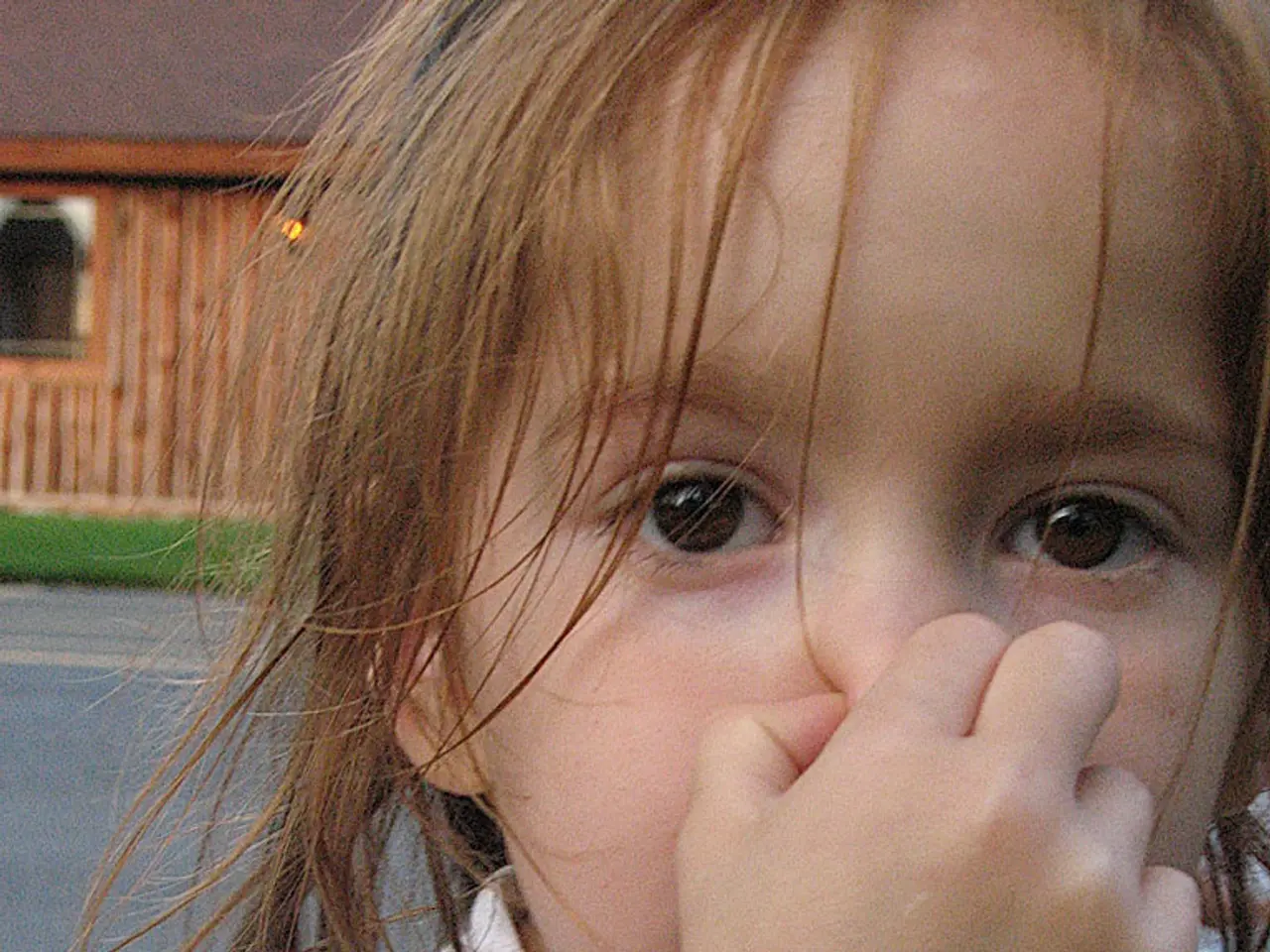Symptoms of the flu in children: Recognizing signs, duration, and remedies
In the midst of cold and flu season, it's essential for parents to be aware of the differences between these common illnesses, especially when it comes to children. While both the flu and the common cold can cause discomfort, the flu often presents more severe symptoms.
Flu Symptoms in Children
The most common flu symptoms in children include sudden fever (often 100.4°F or higher), chills, headache, body aches, sore throat, cough, runny or stuffy nose, fatigue, and sometimes belly pain, nausea, vomiting, or diarrhea. Children with the flu usually feel quite miserable and tired, often having little appetite.
In contrast, cold symptoms in children tend to be milder, typically involving a tickly throat, runny or stuffy nose, sneezing, and sometimes a mild fever if any. Children with colds generally feel quite well, maintain a good appetite, and have normal energy levels.
Key Differences between Flu and Cold in Children
| Symptom Feature | Flu in Children | Cold in Children | |------------------------------|------------------------------------------------|-----------------------------------------| | Fever | Common, sudden onset, often high | Rare, if present usually mild | | Onset | Sudden | Gradual | | Body aches, chills, headache | Common | Uncommon | | Fatigue | Pronounced, children feel very tired | Mild or none | | Appetite | Poor | Usually normal | | Gastrointestinal symptoms | Sometimes (nausea, vomiting, diarrhea) | Rare | | Nasal symptoms (runny nose, sneezing) | Can occur | Common and prominent | | Overall severity | Usually more severe, children feel miserable | Mild, children usually feel well |
Treatment and Prevention
Testing for flu can confirm diagnosis, and treatment may include antiviral medication in some cases, while colds require only supportive care. The Centers for Disease Control and Prevention (CDC) recommends that children over 6 months old receive the flu vaccination annually.
When seeking medical attention for a child with flu, symptoms requiring urgent care include fever above 104°F, difficulty breathing or very fast breaths, seizures, chest pain, the ribs pulling in as the child breathes, dehydration, lack of alertness or responsiveness, worsening of any underlying conditions, and weakness in the legs. Parents are advised to keep children home from school or daycare if they have flu symptoms, especially fever and cough or sore throat, until they are fever-free for at least 24 hours without medication.
Special Considerations
Children with chronic health conditions, such as heart disease, cystic fibrosis, diabetes, severe anemia (including sickle cell), and those undergoing chemotherapy face increased risks from the flu. Children under 2 years old and those with chronic health conditions are at a higher risk of developing complications from the flu. Children over 2 years old can take ibuprofen and acetaminophen for fever, headache, or muscle and body aches, but should avoid aspirin due to its link with Reye's syndrome.
In summary, flu symptoms in children are generally more intense and systemic (fever, aches, fatigue) than cold symptoms, which are milder and more limited to nasal/throat irritation and sneezing. Parents should consult their child's doctor if they are unsure which medication to give or the correct dose. Infants under 3 months old should be evaluated by a doctor if they have any sort of fever. The CDC recommends yearly vaccinations to help protect against the flu. Children with neurological conditions, such as cerebral palsy and muscular dystrophy, are more likely to develop complications if they catch the flu.
A nasal spray with saline solution or salty water can help relieve congestion and dryness in children with flu. Using a humidifier may help clear a child's nasal passageways, making breathing easier. Rare but serious complications of the flu in children can include acute necrotizing encephalopathy, though this is very uncommon.





